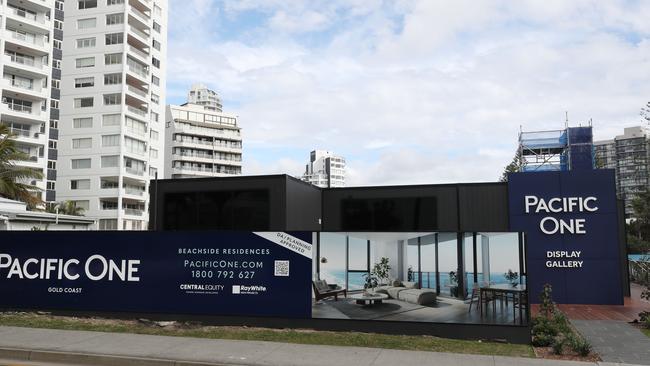Central Equity in profit slump, warns of housing shortages
The Melbourne-based developer was forced to dump a $500m Gold Coast unit tower earlier in the year, and says a reduction in building starts could limit future supply.

Apartment and land developer Central Equity’s profits have plunged as the residential downturn bites high-rise real estate companies.
Central Equity still turned a profit but dumped a $500m Gold Coast unit tower mid-year as the market turned against large projects which require heavy pre-sales.
Developers are suffering in the face of interest rate hikes with more pain expected this week as the Reserve Bank tries to keep a lid on inflation.
Melbourne-based Central Equity has a multi-billion dollar pipeline, with the slowdown in Victoria’s housing market evident from its finances.
The developer warned that buyers would be sidelined by the recent interest rate increases by the RBA, which would ultimately feed into the shortages driving the housing crisis.
“There has been an increase each month up until and including October with mortgage rates almost doubling to approximately 5 per cent per annum,” the directors, led by executive chairman, Eddie Kutner, said in their annual report.
They anticipate that interest rates will continue to increase in the immediate future and this had reduced the capacity of borrowers or made them “sit on the sideline” until conditions are more certain.
The warning comes as the Albanese government prepares for meetings to advance its housing accord to build one million new homes over the next five years.
“Industry sources are now predicting a future shortage of apartments as a result of the reduction of starts,” the Central Equity directors said.
Central Equity recorded a net profit of $12.9m after tax on consolidated revenues of $92.8m, to June 30, down on a $58.7m profit in the prior financial year on revenues of $237.5m.
The company blamed the Covid-19 pandemic’s impact on the development industry, with sales suffering a stop, start effect as a result of the lockdowns and movement restrictions.
Central Equity said construction timelines had blown out and the pipeline of projects greatly reduced as tough times hit the development industry. The private company called out the distorting impact of government incentives on key markets.
“First home buyers were encouraged to enter the housing market by grants/subsidies and concessions from state and federal governments thus having a “pull forward” effect,” the company’s report said.
It also complained that planning changes and additional financial imposts levied on the residential property market by local, state and federal governments had impacted supply. At the same time as financiers are cracking down on borrowing.
“Stringent developer bank financing requirements continue to act as a restriction of supply. Housing shortages will be exaggerated with the growth of migration during 2023 and 2024,” the company said.
The industry’s woes meant that the volume of future development activity had been “greatly curtailed”.
“There is substantial current residential construction activity but as those projects are completed there will be a considerable reduction in future supply, due to reduced construction starts,” Central Equity said.
With large-scale projects taking five to ten years to complete, the dynamics of lower off-the-plan sales and more stringent bank financing requirements “have a regulating effect on the physical supply of completed apartments to the market”.
This meant that opportunistic developers “have retreated from the market place,” Central Equity said. It pointed to a wave of developers either reselling their sites or abandoning projects.
“A number of previously permitted high-rise residential sites have been recast as commercial, further reducing future supply,” Central Equity said. Build-to-rent developers have also snapped up sites that no longer work as traditional apartments.





